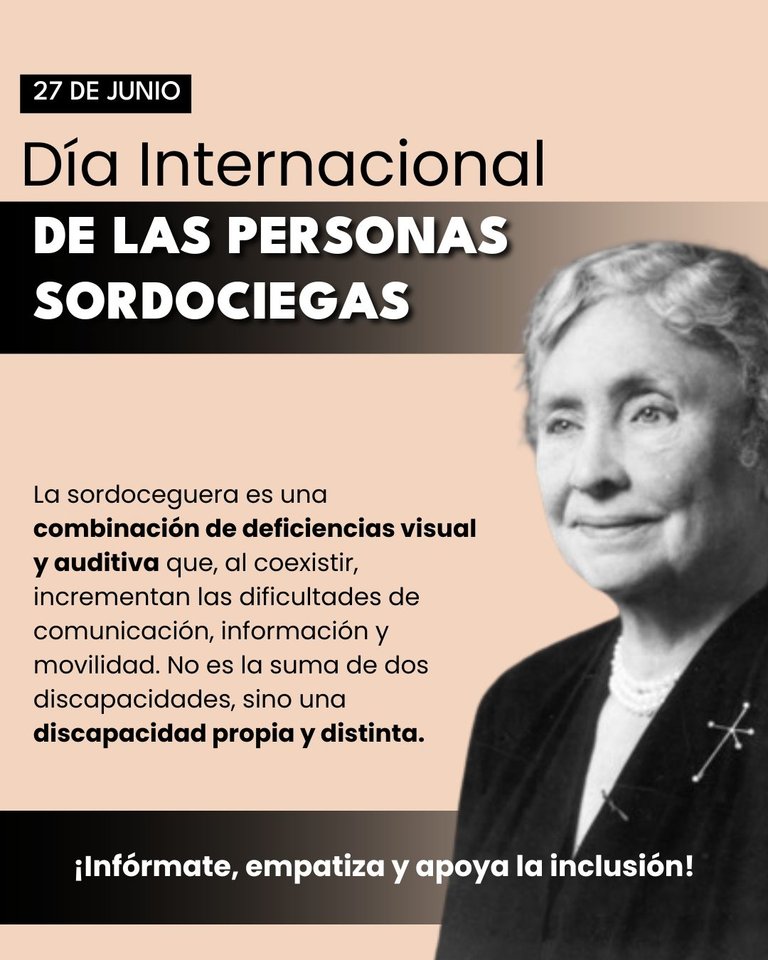¿por qué se celebra el 27 de junio?, se conmemora por el natalicio de Helen Keller, quien nació en 1880, pero ¿quién es ella? Helen fue una escritora estadounidense que no nació con la condición de sordociega, sino que, a los 19 meses de edad, padeció una enfermedad que la dejó en ese estado y, a su vez, le impidió desarrollar el habla. Pese a estas barreras, y con la ayuda inestimable de su maestra Anne Sullivan, aprendió a comunicarse, graduarse de la Universidad y convertirse en escritora, activista y oradora, siendo la voz para aquellas personas que poseen alguna discapacidad, siendo su vida sinónimo de resiliencia, perseverancia y la capacidad de superar cualquier dificultad en la vida, manifestando a su vez, que las personas sordociegas también pueden vivir una vida plena. Biografía extraída de la fundación helen Adams keller
Así como Helen fue una voz para aquellos que viven en un contexto poco sensible a su condición, todos y cada uno de nosotros debemos ser portavoces de sus necesidades, de sus derechos y la educación adecuada que ellos merecen. Sin embargo, siento que, a nivel institucional debería ser aun más abordada, no solo en el hecho de las herramientas necesarias para enseñarles a los discapacitados, sino a todos por igual, cada persona desde pequeño debería aprender a como comunicarse con personas en esas condiciones, el lenguaje que manejan y todo lo que implica la comunicación sensorial, como lo son Lengua de Signos Táctil, Alfabeto Dactilológico o Deletreo en Palma y Braille.
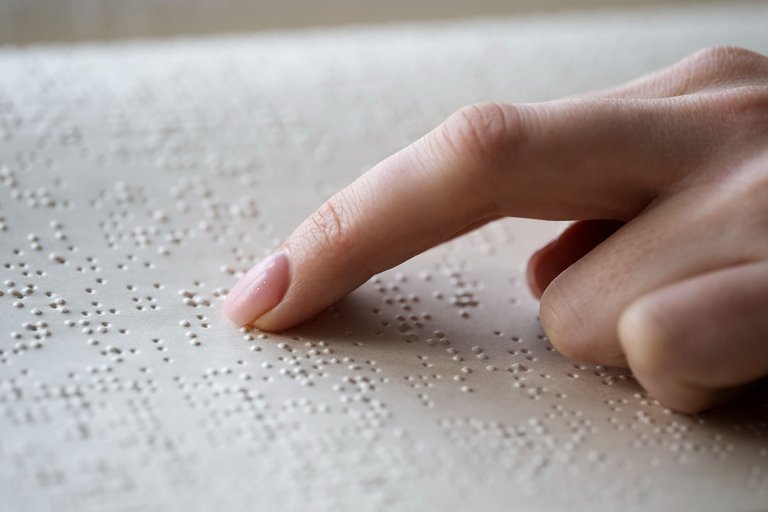
Fuente
Pienso que, debería ver materias obligatorias sobre lenguaje de señas y braille, primero por que sensibilizas al niño a entender que hay ciertas personas que tienen una discapacidad y que no son seres extraños y mucho menos que deban ser aislados; segundo comprendes su mundo y logras empatizar con ellos. Hay que construir un puente que conecte nuestro mundo con el de ellos y sea reciproco, debemos instruirnos e instruir a los demás a tomar conciencia sobre este hecho, promover y proporcionar las soluciones adecuadas a que los discapacitados no solo tenga una mejor participación en la sociedad, sino que cumplan esos roles con las mejores herramientas y una buena calidad de vida.
Las redes sociales son el mejor apoyo para que tomemos acción y empecemos a ser los puentes para personas sordociegas, ¿te imaginas un mundo sin verlo y escucharlo? Pues ellos lo viven todos los días y aun así continúan en su día a día, llevándola de la mejor manera posible, con una admirable resiliencia, por lo que, ¿No sería mejor ayudarlos a que su camino sea menos complicado? seamos pilares que promuevan la inclusión.

Fuente
¿Por donde comenzar? Busquen información, educarse siempre será el mejor punto de partida para ser más consciente de estas discapacidades y, a su vez, ser más empáticos con ellos.

Las imágenes fueron descargadas de la página Freepik. Portada (Flyer) diseñada en CANVA. Texto traducido en DeepL.

Gracias por leer mi post. Espero que les haya gustado. Estaré atenta a responder sus comentarios. Pueden visitar mi blog, seguir mis contenidos y redes sociales.
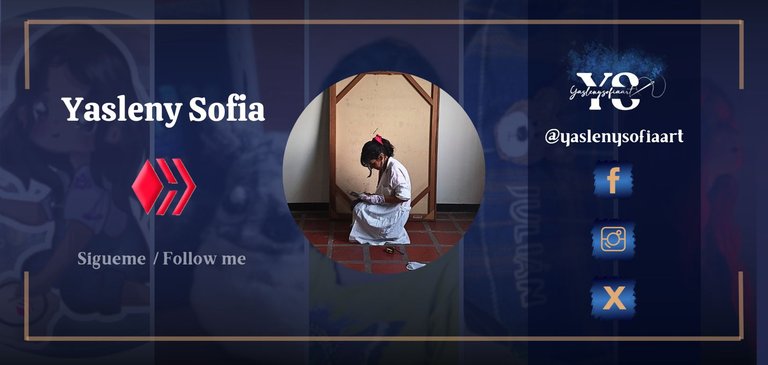
FACEBOOK / INSTAGRAM / TWITTER

ENGLISH
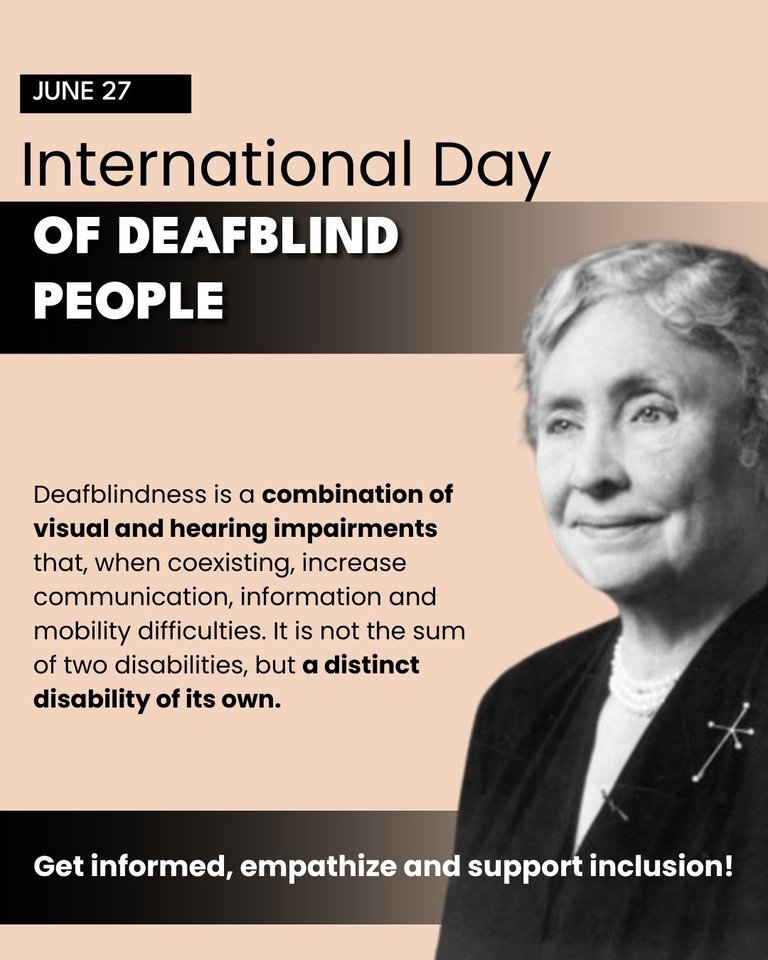
Although I do not have family members who are deafblind, I have had family members who live with this condition and have witnessed the difficulties they face in a society that is often not prepared to fully address their needs, nor to make them adapt to the environment in which we all live. This reality motivated me to highlight the importance of this day and to delve deeper into what it means to live with deafblindness.
As I have already mentioned, deafblindness (visual and hearing loss or impairment, to varying degrees) is a complex disability that often goes unnoticed because we are not fully educated to identify it. In addition, the public space often lacks clear guidance on how to adapt to deafblind people and how they can adapt to their environment, which severely limits interaction and inclusion.
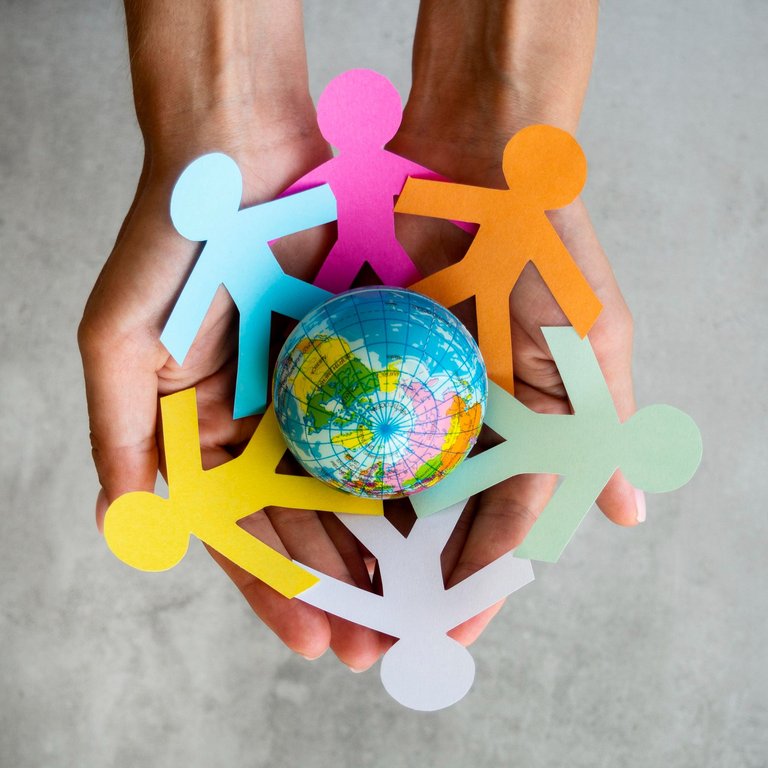
Source
Why is June 27th celebrated as the birthday of Helen Keller, who was born in 1880, but who is she? Helen was an American writer who was not born deaf-blind but, at 19 months of age, suffered from an illness that left her deaf-blind and, in turn, prevented her from developing speech. Despite these barriers, and with the invaluable help of her teacher Anne Sullivan, she learned to communicate, graduated from college and became a writer, activist and speaker, being the voice for those who have a disability, her life being synonymous with resilience, perseverance and the ability to overcome any difficulty in life, demonstrating in turn, that deafblind people can also live a full life. Biography extracted from the helen Adams keller foundation
Just as Helen was a voice for those who live in a context that is not very sensitive to their condition, each and every one of us should be a spokesperson for their needs, their rights and the proper education they deserve. However, I feel that, at the institutional level should be even more addressed, not only in the fact of the necessary tools to teach the disabled, but to all equally, each person from an early age should learn how to communicate with people in these conditions, the language they handle and everything that involves sensory communication, such as Tactile Sign Language, Dactylological Alphabet or Spelling in Palm and Braille.

Source
I think that there should be compulsory subjects on sign language and Braille, first because you sensitize the child to understand that there are certain people who have a disability and that they are not strangers and much less that they should be isolated; second you understand their world and you can empathize with them. We must build a bridge that connects our world with theirs and is reciprocal, we must educate ourselves and others to become aware of this fact, promote and provide appropriate solutions to the disabled not only have a better participation in society, but to fulfill these roles with the best tools and a good quality of life.
Social networks are the best support for us to take action and start being the bridges for deafblind people, can you imagine a world without seeing and hearing it? Well, they live it every day and yet they continue in their daily lives, carrying it in the best possible way, with an admirable resilience, so, wouldn't it be better to help them to make their way less complicated? Let's be pillars that promote inclusion.

Source
Where to start? Seek information, educating yourself will always be the best starting point to become more aware of these disabilities and, in turn, be more empathetic towards them.

The images were downloaded from Freepik. Cover (Flyer) designed in CANVA. Text translated in DeepL.

Thanks for reading my post. I hope you liked it. I will be attentive to answer your comments. You can visit my blog, follow my content and social networks.

FACEBOOK / INSTAGRAM / TWITTER

